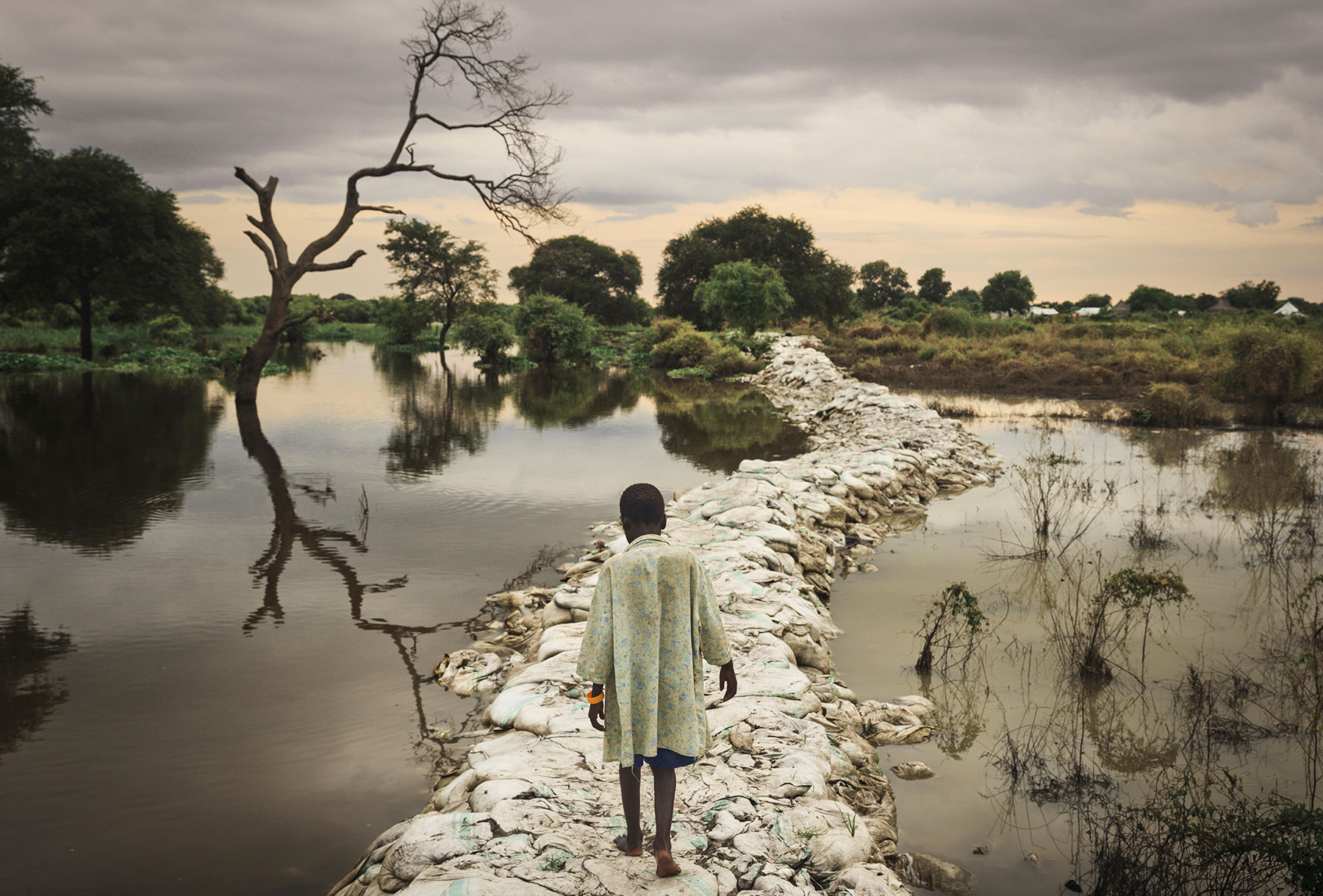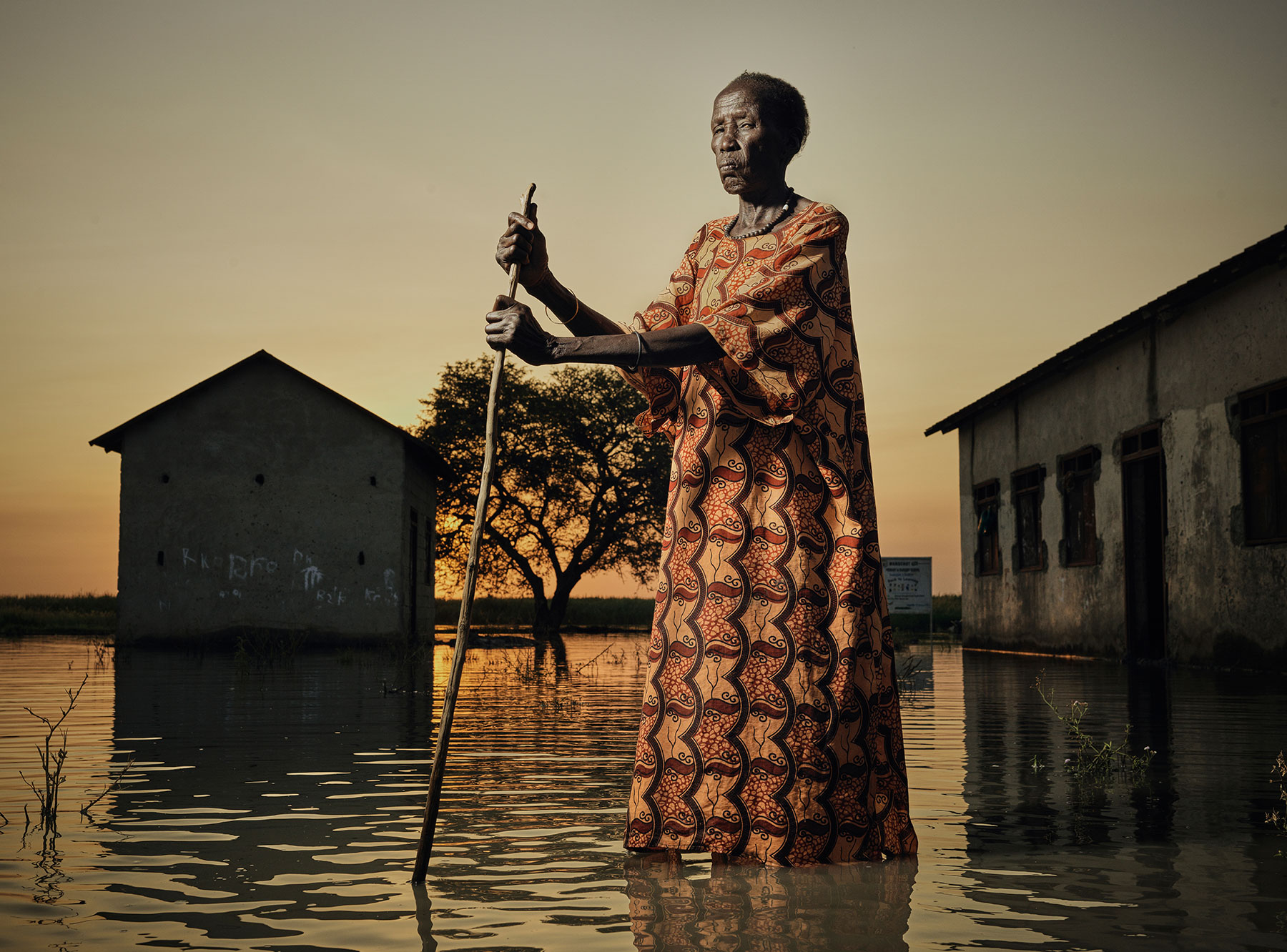Since 2019, relentless flooding has devastated southern Sudan, causing entire communities to be displaced. Some experts fear that this situation will become the first case of permanent mass displacement due to climate change. The Intergovernmental Group on Climate Change warns that such floods will worsen, but the nation and its infrastructure are weakened by internal conflicts, and responses to the disaster are therefore weak. Entire towns have disappeared under the water, with only the roofs of houses visible above the surface. More than half of the population is facing hunger and acute food insecurity, with children being the most vulnerable. Farmland is submerged, crops have been destroyed, and the disaster is compounded by a serious health crisis and violence in a country that was recovering from a bloody civil war.
Yet, amid the devastation, in areas where traditional crops can no longer survive, farmers have begun to grow flood-resistant rice, transforming flooded lands into a source of food and income. Fishing has become a primary means of survival, and canoe trade sustains local economies. In some regions, families have built floating grass mounds—artificial islands that move with the water levels—allowing them to stay put and avoid overcrowded refugee camps.
I documented this catastrophe over the course of four years and met people with extraordinary resilience in the face of disaster. Samuel, a father of four, told me about his village being swallowed up by floods in 2021: ‘The water kept coming and we had nowhere to go. We built platforms with grass and sticks to keep our children above the water.‘ Mary testifies: ’We were farmers, but now we live on the water. We are trying to adapt, but hunger is a concern.” Her family now depends on fish and wild water lilies.
Through my work, using a Hasselblad camera, I aspire to share information about this heartbreaking reality with the world, which requires attention and action. Although there are no easy answers, disseminating images that stimulate reflection is a crucial step towards awareness and change.



